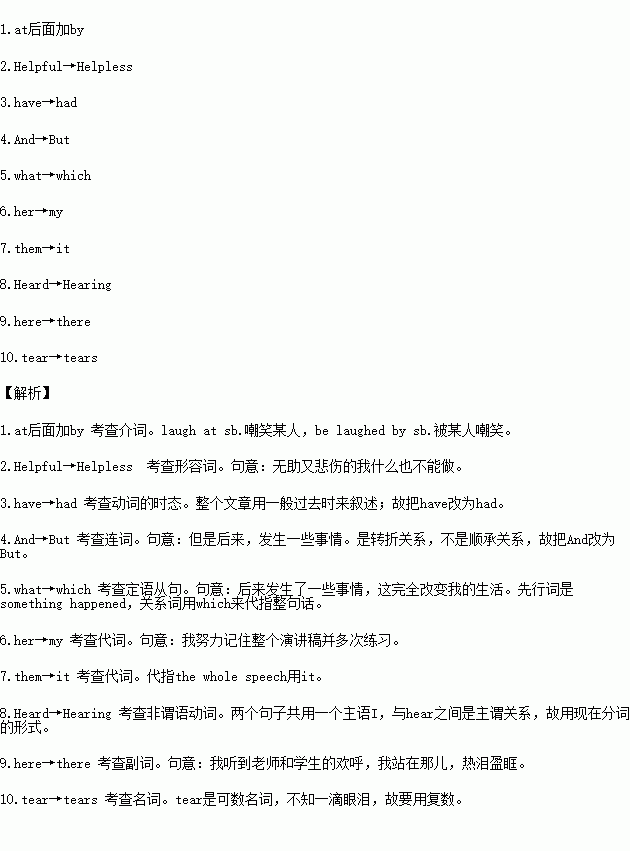题目内容
假定英语课上老师要求同桌之间交换修改作文, 请你修改你同桌写的以下作文。文中共有10处语言错误,每句中最多有两处。每处错误仅涉及一个单词的增加、删除或修改。
增加:在缺词处加一个漏字符号(∧),并在其下面写出该加的词。
删除:把多余的词用斜线( \ )划掉。
修改:在错词下划一横线,并在该词下面写出修改后的词。
注意:1.每处错误及其修改均仅限一词;
2.只允许修改10处,多者(从第11处起)不计分。
I was often laughed at my classmates before I turned 14 because I was always very nervous when talking to someone. Helpful and sad, I felt that I could do nothing. You cannot imagine what great difficulty I have in my life. And later, something happened, what changed my life completely. It was an English speech contest and my mother encouraged me to take part in it. I tried her best to remember the whole speech “Believe in yourself” and practised them over 100 times. Believe it or not, I finally won the first prize. Heard the cheers from the teachers and students, I stood here, with my eyes full of excited tear.
 期末冲刺100分创新金卷完全试卷系列答案
期末冲刺100分创新金卷完全试卷系列答案
